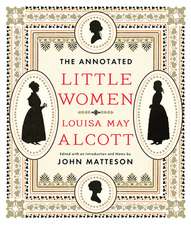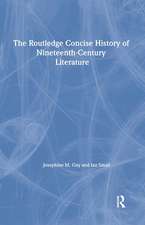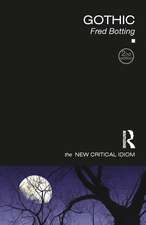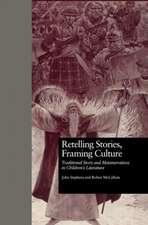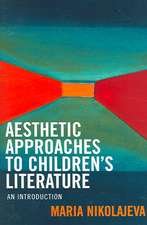Routledge Library Editions: The German Economy: Routledge Library Editions: The German Economy
Autor Variousen Limba Engleză Hardback – 2 iun 2017
- address a number of central issues relating to the nature of German industrialisation, including the role of foreign competition in fostering technological change, the importance of market integration for economic development and the response of German banks to industrialisation.
- offer a picture of the upsurge of New Unionism and the growth of old unions, and look at the severe setbacks which occurred in the labour movements of Britain and Germany between the 1880s and the First World War.
- analyze how the East German economy actually operated - planning and management, pricing, investment and innovation and the financial system
- provide detailed comparative analysis of how local authorities in the UK and Germany faced up to the challenge of trying to help local industry and improve employment prospects.
- provide a multi-faceted analysis of German unemployment between 1873 and 1913.
Preț: 8797.51 lei
Preț vechi: 13242.93 lei
-34% Nou
Puncte Express: 13196
Preț estimativ în valută:
1683.63€ • 1751.23$ • 1389.92£
1683.63€ • 1751.23$ • 1389.92£
Carte tipărită la comandă
Livrare economică 15-29 aprilie
Preluare comenzi: 021 569.72.76
Specificații
ISBN-13: 9781138293601
ISBN-10: 1138293601
Pagini: 3874
Dimensiuni: 156 x 234 mm
Greutate: 9.13 kg
Ediția:1
Editura: Taylor & Francis
Colecția Routledge
Seria Routledge Library Editions: The German Economy
Locul publicării:Oxford, United Kingdom
ISBN-10: 1138293601
Pagini: 3874
Dimensiuni: 156 x 234 mm
Greutate: 9.13 kg
Ediția:1
Editura: Taylor & Francis
Colecția Routledge
Seria Routledge Library Editions: The German Economy
Locul publicării:Oxford, United Kingdom
Public țintă
General, Postgraduate, Professional, and UndergraduateCuprins
1. Edited by Norbert Altmann, Christoph Kohler and Pamela Meil Technology and work in German industry 978-0-415-79121-2/ebook 978-1-315-21248-7 2. Graeme. W. Dean, Frank L. Clarke, Oliver Finley Graves Replacement costs and accounting reform in post-World War I Germany 978-0-415-78647-8/ebook 978-1-315-22732-0 3. Geoffrey R Denton, Murray Forsyth and Malcolm Cameron Maclennan Economic planning and policies in Britain, France and Germany 978-0-415-78598-3/ ebook 978-1-315-22805-1 4. Carola M. Frege Social partnership at work : workplace relations in post-unification Germany 978-0-415-78575-4/ebook 978-1-315-22808-2 5. Linda Abramson Heilman Industrial unemployment in Germany, 1873-1913 978-1-138-72898-1/ebook 978-1-315-18981-9 6. Edited by Ian Jeffries and Manfred Melzer. Trans by Eleonore Breuning and Ian Jeffries The East German Economy 978-1-138-73002-1/ebook 978-1-315-18927-7 7. Nevil Johnson and Allan Cochrane Economic policy making by local authorities in Britain and West Germany 978-0-415-78807-6/ebook 978-1-315-22558-6 8. Peter A. Lawrence Managers and management in West Germany 978-0-415-78873-1/ebook 978-1-315-22305-6 9. Edited by W. R. Lee German industry and German industrialisation : essays in German economic and business history in the nineteeth and twentieth centuries 978-0-415-78862-5/ebook 978-1-315-22326-1 10. Ian Maitland The causes of industrial disorder : a comparison of a British and a German factory 978-0-415-78423-8/ebook 978-1-315-22852-5 11. Edited by Wolfgang J. Mommsen, Hans-Gerhard Husung The Development of trade unionism in Great Britain and Germany, 1880-1914 978-0-415-79137-3/ebook 978-1-315-21229-6 12. Gustav Stolper German Economy, 1870-1940 978-0-415-78817-5/ebook 978-1-315-22551-7 13. Philip Barrett Whale Joint stock banking in Germany : a study of the German creditbanks before and after the War 978-0-415-78900-4/ebook 978-1-315-22301-8
Notă biografică
Multivolume collection by leading authors in the field
Descriere
Originally published between 1930 and 1992 the volumes in this set:
- address a number of central issues relating to the nature of German industrialisation, including the role of foreign competition in fostering technological change, the importance of market integration for economic development and the response of German banks to industrialisation.
- offer a picture of the upsurge of New Unionism and the growth of old unions, and look at the severe setbacks which occurred in the labour movements of Britain and Germany between the 1880s and the First World War.
- analyze how the East German economy actually operated - planning and management, pricing, investment and innovation and the financial system
- provide detailed comparative analysis of how local authorities in the UK and Germany faced up to the challenge of trying to help local industry and improve employment prospects.
- provide a multi-faceted analysis of German unemployment between 1873 and 1913.
Recenzii
“The timely re-issue of the prescient Ethnoscapes series provides an invaluable contribution to current concerns about built and natural environments. The breadth of coverage of these books, includes public participation in environmental modifications, the impact of housing design on the quality of life, cross-cultural comparisons of placemaking, and the role of building aesthetics on well-being, across many countries and contexts adds up to a treasure trove of innovative research. Now more than ever we need the benefit of the insights and findings of these scholars and professional (many of course who are both) who, over three decades, have studied crucial aspects of interactions between people and their surroundings.”
Ricardo García Mira, Professor of Social Psychology, University of A Coruna, Galicia, Spain. Former Spanish MP.
“The reissued volumes in the Ethnoscapes series were ground- breaking when they first appeared and remain fresh today. These books are essential for understanding how design and the use of space has cultural and human meaning that “artificial intelligence” could never achieve. They offer a vital and timely antidote to mind-numbing apology for the appropriation of civic space and corporate reproduction of McMansions and shopping malls.”
Ben Wisner, Honorary Visiting Professor, University College London, UK.
“The physical aspects of our wonderfully complex world combine with social and psychological factors, to give a myriad of joys and sorrows accompanying our lifeworld activities. To make existence manageable, we need to find order within such chaos. As researchers of all types, but especially social scientists, we are driven to identify networks of causes and effects. This series provides excellent examples of such writing, concerning natural and built environments, from a host of scholars, representing a range of disciplines.”
Andrew Turk, Adjunct Associate Professor, Murdoch University, Western Australia.
“People interested and concerned about how we are interacting with and shaping our built and natural environments will find the insights and findings in this re-issued Ethnoscapes series of great value. Over more than 30 years this accumulated cornucopia of research reveals how important it is to understand the meanings and significance of many aspects of human- environment transactions. These include studies of user involvement in design, with its implications for place-making, as well as crucial explorations of the meaning of home and the role of environmental aesthetics for our wellbeing. Every volume opens new doors, often being the forerunners to major areas of study.”
Arza Churchman, Professor Emerita at Technion- Israel Institute of Technology, Haifa, Israel.
“The re-issue of the Ethnoscapes series provides everyone who cares about human-environment studies a wonderful opportunity to re-acquaint themselves with many groundbreaking efforts in the field. The series provides a wide range of explorations by researchers who have helped to make sense of persons in interaction with their surroundings, and contributed to inspired placemaking”.
Robert Gifford, Professor of Psychology and Environmental Studies, University of Victoria, British Columbia, Canada.
Ricardo García Mira, Professor of Social Psychology, University of A Coruna, Galicia, Spain. Former Spanish MP.
“The reissued volumes in the Ethnoscapes series were ground- breaking when they first appeared and remain fresh today. These books are essential for understanding how design and the use of space has cultural and human meaning that “artificial intelligence” could never achieve. They offer a vital and timely antidote to mind-numbing apology for the appropriation of civic space and corporate reproduction of McMansions and shopping malls.”
Ben Wisner, Honorary Visiting Professor, University College London, UK.
“The physical aspects of our wonderfully complex world combine with social and psychological factors, to give a myriad of joys and sorrows accompanying our lifeworld activities. To make existence manageable, we need to find order within such chaos. As researchers of all types, but especially social scientists, we are driven to identify networks of causes and effects. This series provides excellent examples of such writing, concerning natural and built environments, from a host of scholars, representing a range of disciplines.”
Andrew Turk, Adjunct Associate Professor, Murdoch University, Western Australia.
“People interested and concerned about how we are interacting with and shaping our built and natural environments will find the insights and findings in this re-issued Ethnoscapes series of great value. Over more than 30 years this accumulated cornucopia of research reveals how important it is to understand the meanings and significance of many aspects of human- environment transactions. These include studies of user involvement in design, with its implications for place-making, as well as crucial explorations of the meaning of home and the role of environmental aesthetics for our wellbeing. Every volume opens new doors, often being the forerunners to major areas of study.”
Arza Churchman, Professor Emerita at Technion- Israel Institute of Technology, Haifa, Israel.
“The re-issue of the Ethnoscapes series provides everyone who cares about human-environment studies a wonderful opportunity to re-acquaint themselves with many groundbreaking efforts in the field. The series provides a wide range of explorations by researchers who have helped to make sense of persons in interaction with their surroundings, and contributed to inspired placemaking”.
Robert Gifford, Professor of Psychology and Environmental Studies, University of Victoria, British Columbia, Canada.
















